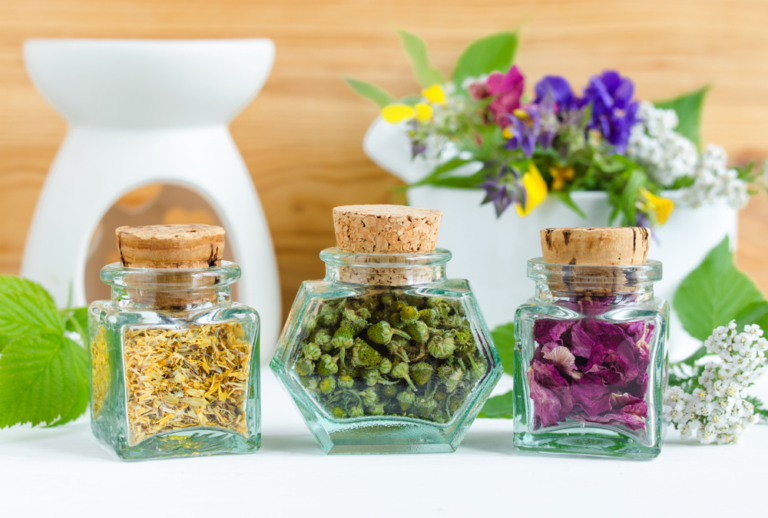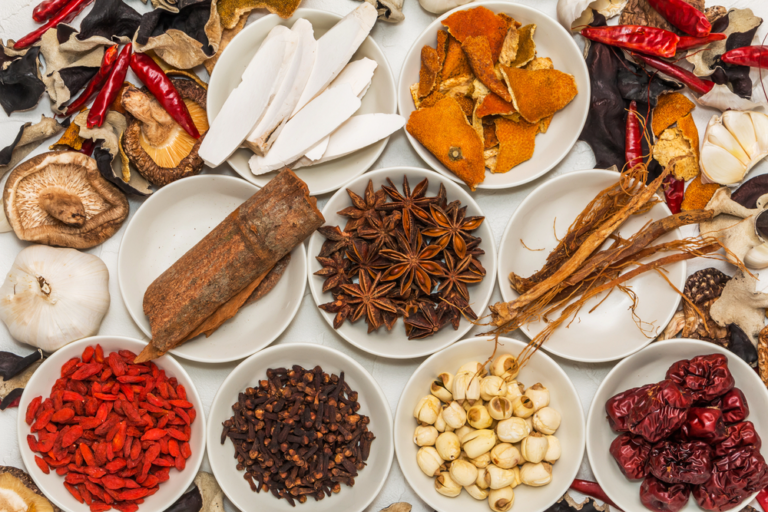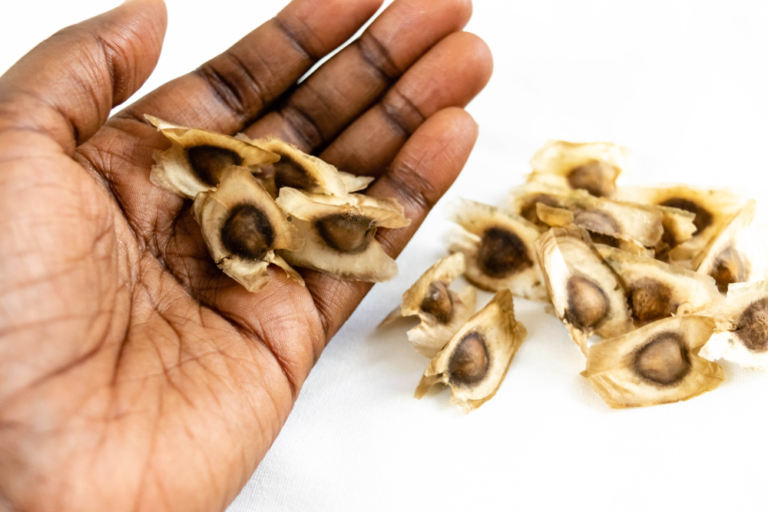Kitchen to Medicine Healing Herbs
If so, then you may want to consider incorporating healing herbs into your daily routine.
These kitchen staples and common plants have been used for centuries to treat various health conditions and promote overall wellness.
From soothing inflammation to boosting the immune system, these herbs pack a powerful punch when it comes to healing properties.
In this article, we will explore some of the most widely recognized and effective herbs that can be found in your kitchen or easily grown in your backyard.
By the end, you will have a better understanding of the potential benefits of incorporating these herbs into your life and how they can become an essential part of your medicine cabinet.
So, let’s dive into the world of herbal medicine and discover the natural remedies that may just revolutionize your approach to healthcare.
Table of Contents Kitchen to Medicine Healing Herbs
Discover the healing power of herbs
To harness the incredible potential of nature’s remedies, delve into the realm of healing herbs.
From the comfort of your own kitchen, you can unlock a wealth of natural remedies that have been used for centuries to promote health and wellbeing.
By incorporating healing herbs into your daily routines and rituals, you can tap into their therapeutic benefits and support your overall wellness.
Whether it’s soothing chamomile for relaxation, invigorating peppermint for digestion, or calming lavender for sleep, these herbs have a place in your medicine cabinet as valuable tools for holistic healing.
With a bit of knowledge and experimentation, you can embark on a journey of self-care and self-discovery, harnessing the potential of these healing herbs from your kitchen to transform your health and wellbeing.
Transform your kitchen into pharmacy
From your kitchen to your medicine cabinet, there is a world of healing herbs that you should know about.
These natural remedies have stood the test of time and offer a holistic approach to wellness.
Take, for example, the versatile herb turmeric.
Known for its anti-inflammatory properties, incorporating turmeric into your cooking can help alleviate joint pain and support a healthy immune system.
Another powerful herb is ginger, which aids in digestion and can provide relief from nausea and stomach discomfort.
By familiarizing yourself with the healing properties of herbs like these, you can transform your kitchen into a pharmacy of natural remedies.
Experiment with different herbs, teas, and infusions to find the ones that work best for you and your specific health needs.
With a little knowledge and a well-stocked herb cabinet, you can unlock the potential of these healing herbs and take control of your own well-being.
Learn about herbs for pain relief
When it comes to managing pain, exploring the world of healing herbs can offer a natural and effective solution.
From kitchen to medicine cabinet, there are various herbs that have been traditionally used for their pain-relieving properties.
One such herb is arnica, known for its ability to reduce inflammation and soothe muscle soreness.
Another herb worth exploring is chamomile, which has calming and anti-inflammatory effects that can help alleviate tension headaches and migraines.
Additionally, devil’s claw, a plant native to Africa, has been used for centuries to treat chronic pain and inflammation.
By learning about these herbs for pain relief and incorporating them into your routine, you can tap into their natural healing properties and find relief from discomfort.
Remember to consult with a healthcare professional before using herbs as a form of treatment, especially if you have any underlying health conditions or are taking medication.
With the right knowledge and approach, the healing herbs from your kitchen to your medicine cabinet can become valuable tools in managing pain and promoting overall well-being.
Boost your immune system naturally
Boosting your immune system naturally is essential for maintaining overall health and well-being.
By incorporating certain herbs into your daily routine, you can support your immune system and strengthen its ability to fight off infections and illnesses.
Echinacea, for example, is a powerful herb known for its immune-boosting properties.
It stimulates the production of white blood cells, which play a crucial role in fighting off pathogens.
Another herb to consider is ginger, which has antimicrobial and anti-inflammatory properties that can enhance immune function.
Additionally, elderberry is rich in antioxidants and has been used for centuries to support immune health.
These herbs, along with others such as garlic and turmeric, can be easily incorporated into your everyday meals or consumed as supplements to provide natural immune support.
Remember to consult with a healthcare professional before adding any new herbs or supplements to your routine, especially if you have any underlying health conditions or are currently taking medication.
By harnessing the power of these healing herbs, you can strengthen your immune system and promote overall wellness.
Fight inflammation with these herbs
When it comes to combating inflammation, there are several powerful herbs that can help alleviate symptoms and promote overall wellbeing.
Turmeric, known for its active compound curcumin, has long been recognized for its anti-inflammatory properties.
Adding turmeric to your meals or consuming it in supplement form can help reduce inflammation throughout the body.
Another herb to consider is Boswellia, also known as Indian frankincense, which contains compounds that inhibit inflammatory enzymes.
Incorporating Boswellia into your routine can help reduce pain and swelling associated with inflammation.
Lastly, ginger, with its potent anti-inflammatory and antioxidant properties, can provide relief from inflammation in conditions such as arthritis.
Whether used in cooking or consumed as a tea, ginger can be a valuable addition to your anti-inflammatory arsenal.
By incorporating these herbs, along with others such as rosemary and green tea, into your kitchen and medicine cabinet, you can effectively fight inflammation and promote overall health and wellness.
Discover herbs for digestive health
From Kitchen to Medicine Cabinet Healing Herbs You Should Know About, there are also a variety of herbs that can promote digestive health and support overall wellness.
One such herb is peppermint, which has been used for centuries to soothe digestive discomfort and relieve symptoms such as bloating and indigestion.
Incorporating peppermint into your routine, whether through herbal tea or as an essential oil, can provide relief and promote a healthy digestive system.
Another herb to consider is chamomile, known for its calming properties and ability to reduce gastrointestinal inflammation.
Enjoying a cup of chamomile tea after a meal can help relax the digestive system and alleviate discomfort.
Additionally, fennel, with its aromatic and digestive properties, has been used to ease gastrointestinal issues for centuries.
Consuming fennel seeds or incorporating them into your cooking can aid digestion and reduce bloating.
By incorporating these herbs, along with others such as ginger and dandelion, into your daily routine, you can support your digestive health and promote overall well-being.
Say goodbye to headaches naturally
Are you tired of dealing with frequent headaches and looking for natural remedies? Look no further than the From Kitchen to Medicine Cabinet Healing Herbs You Should Know About for effective solutions.
Headaches can be debilitating and can disrupt your daily life, but there are several herbs that can help alleviate the pain without relying on medication.
One such herb is feverfew, which has been traditionally used to treat migraines and reduce the frequency and intensity of headaches.
Its anti-inflammatory properties can help relax blood vessels in the brain and provide relief.
Another herb to consider is lavender, known for its calming and soothing effects.
Applying lavender essential oil to your temples or inhaling its aroma can help reduce tension and relieve headaches caused by stress or anxiety.
Lastly, peppermint is a versatile herb that can help ease headaches by improving blood flow and reducing muscle tension.
Whether consumed as a tea or applied topically, peppermint can provide a refreshing and cooling sensation to alleviate headache symptoms.
Don’t let headaches control your life, explore the natural remedies offered by the healing herbs in your kitchen cabinet and experience relief without relying on medication.
Learn about herbs for skin health
If you’re looking to improve your skin health naturally, the From Kitchen to Medicine Cabinet Healing Herbs You Should Know About offers a wealth of knowledge on herbal remedies.
One herb worth exploring is aloe vera, known for its soothing and healing properties.
Applying aloe vera gel to the skin can help reduce inflammation, promote healing, and moisturize dry or irritated skin.
Another herb to consider is chamomile, which has anti-inflammatory and antioxidant properties.
Using chamomile tea as a facial toner or incorporating it into homemade skincare products can help calm sensitive skin and reduce redness.
Additionally, turmeric, with its powerful antioxidant and anti-inflammatory properties, can be beneficial for various skin conditions.
Mixing turmeric powder with honey or yogurt to create a face mask can help brighten the complexion and reduce acne or blemishes.
Exploring these herbs and incorporating them into your skincare routine can be a natural and effective way to enhance your skin health.
In conclusion, incorporating healing herbs into your daily routine can provide a natural and effective way to support your overall well-being.
Whether you are looking to boost your immune system, ease digestive issues, or reduce inflammation, there are plenty of options to choose from.
Remember to always consult with a healthcare professional before adding new herbs to your regimen, and to do your own research to ensure safe and proper usage.
With the vast array of healing herbs available, you can easily transform your kitchen into a medicine cabinet full of natural remedies.
FAQ
What are some common healing herbs found in the kitchen that can be used for medicinal purposes?
In your kitchen, you may find several common herbs with powerful healing properties.
Ginger, known for its anti-inflammatory properties, can soothe digestive issues and relieve nausea.
Turmeric, with its active compound curcumin, has potent antioxidant and anti-inflammatory effects.
It can aid in reducing pain and inflammation in the body.
Garlic, a natural antibiotic, can boost your immune system and fight off infections.
Peppermint is a versatile herb that can alleviate digestive discomfort, ease headaches, and promote relaxation.
Lastly, chamomile, known for its calming properties, can help with anxiety, insomnia, and digestive troubles.
How do these healing herbs work to promote health and healing in the body?
These healing herbs work by harnessing their natural properties and compounds to support your body’s innate healing processes.
When you consume or apply these herbs, they interact with your body’s systems, such as the immune system or the nervous system, to promote health and healing.
For example, some herbs have anti-inflammatory properties that can reduce inflammation and ease pain, while others have antioxidant properties that can protect your cells from damage.
Additionally, certain herbs contain specific compounds that have been shown to have antimicrobial or antibacterial effects, supporting your body’s ability to fight off infections.
Overall, these healing herbs work in synergy with your body to nourish, balance, and restore your health.
Are there any potential side effects or interactions to be aware of when using these herbs?
When using these herbs, it is important for you to be aware of potential side effects and interactions.
Some herbs may cause allergic reactions or digestive issues, so pay attention to any unusual symptoms.
Additionally, certain herbs may interact with medications you are taking, potentially affecting their effectiveness.
It is advisable to consult with a healthcare professional or do thorough research before using any herbs, especially if you have pre-existing medical conditions or are on medication.
Taking precautions and being informed can help ensure a safe and beneficial experience with herbal remedies.
Can you provide some examples of herbal remedies that can be made using these kitchen herbs?
Sure, you can create herbal remedies using kitchen herbs like ginger and garlic.
Ginger can be made into a soothing tea to relieve nausea and aid digestion.
You can also make a ginger compress by boiling ginger in water and using the liquid to soak a cloth, which can be applied to reduce inflammation and pain.
Garlic can be used to make a potent cold and flu remedy by crushing a few cloves and mixing them with honey.
This mixture can be taken daily to boost the immune system.
Additionally, garlic oil can be made by infusing garlic in olive oil, which can be applied topically to treat fungal infections.
Are there any scientific studies or research supporting the effectiveness of these healing herbs in treating specific health conditions?
Yes, there have been numerous scientific studies and research conducted to support the effectiveness of healing herbs in treating specific health conditions.
These studies have shown that herbs like turmeric, ginger, and garlic have anti-inflammatory properties that can alleviate symptoms of arthritis and other inflammatory conditions.
Additionally, herbs like chamomile and lavender have been found to have calming effects on the nervous system, helping to reduce anxiety and improve sleep quality.
However, it’s important to consult with a healthcare professional before using these herbs as a treatment, as they may interact with certain medications or have adverse effects in certain individuals.







